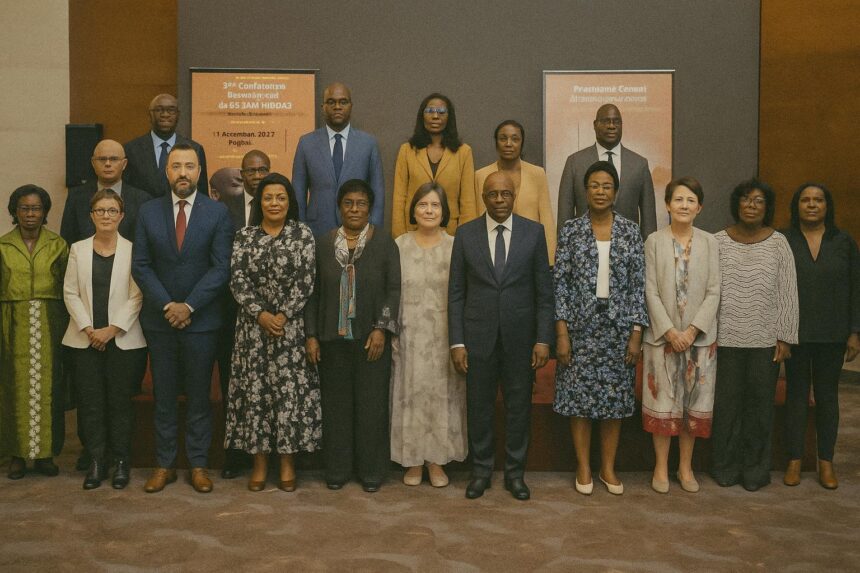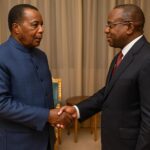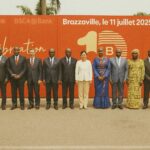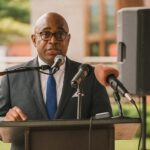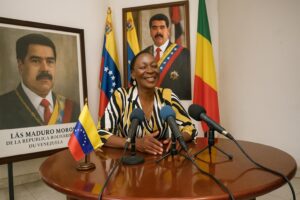A Partnership Rooted in 1963
Few bilateral frameworks on the African continent can claim the longevity of the European Union’s engagement with Congo-Brazzaville. Initiated under the Yaoundé Convention in 1963 and deepened through successive Lomé and Cotonou agreements, the relationship has weathered ideological shifts in both Brussels and Brazzaville. When Ambassador Anne Marchal paid her inaugural visit to Finance Minister Christian Yoka on 10 July 2025, the encounter therefore carried a ceremonial air: two newcomers exchanging courtesies on an avenue paved by sixty-two years of pragmatic cooperation. Both interlocutors chose to emphasise continuity. Marchal noted that “the architecture of our collaboration allows rapid adaptation without losing institutional memory”, a subtle nod to the European External Action Service’s decision to prioritise partner ownership (European Commission 2024).
Fiscal Dialogue and Infrastructure Modernity
Under the current Multiannual Financial Framework, the EU has earmarked grants and blended finance instruments to modernise Congo’s customs administration, upgrade urban road corridors and refine public procurement norms. Minister Yoka underlined that fiscal coherence remains a sovereign imperative, yet he welcomed technical assistance that “makes revenue mobilisation compatible with continental free-trade targets” (AfCFTA Secretariat 2023). In practice, the EU’s support for Brazzaville’s Single Treasury Account has reduced payment arrears, bolstering creditor confidence ahead of the next euro-bond prospectus. Diplomats quietly applaud the deft balance: infrastructure modernisation proceeds without jeopardising the government’s commitment to macro-economic stability endorsed by the IMF last December.
Forestry Governance Meets Climate Diplomacy
Congo’s dense equatorial forest, a pillar of the tri-national Sangha-Trinational landscape, remains both a biodiversity trove and a negotiating asset in climate forums. Brussels channels roughly €40 million to traceability systems, concession audits and community forestry schemes that anchor the Central African Forest Initiative. The political subtext is unmistakable: preserving Congo’s carbon sink buys diplomatic capital for President Denis Sassou Nguesso while advancing the EU’s objective of sourcing deforestation-free timber by 2030 (Council of the EU 2023). Local NGOs occasionally question enforcement, yet Ambassador Marchal insisted that “the partnership incentivises legal exports instead of penalising producers”, signalling a preference for cooperative compliance over punitive conditionality.
Global Gateway and Private Capital Ambitions
The novelty in Marchal’s portfolio lies in the Global Gateway, the EU’s €300 billion answer to contemporary geoeconomic rivalries. For Congo, pilot projects target the fibre-optic backbone linking Pointe-Noire to Ouesso, and a vocational centre specialising in green-hydrogen maintenance, both designed to crowd-in European institutional investors. Early scoping missions by the European Investment Bank confirm “solid commercial fundamentals in transport and data infrastructure” (EIB 2025). Brazzaville, keen to diversify beyond hydrocarbons, welcomes the prospect of blended loans that keep public debt within the parameters negotiated with the IMF while accelerating the digital transformation mapped in its 2022 National Development Plan.
Navigating Regional Stability and Multilateral Goals
The EU’s diplomatic calculus in Central Africa inevitably intersects with security. Although Brazzaville enjoys relative calm compared with some neighbours, the volatility of the Gulf of Guinea and transnational wildlife trafficking calls for vigilance. Joint funding of maritime domain awareness and customs risk-management modules reflects a broader European objective: safeguarding supply chains that now underpin the Global Gateway’s commercial corridors. As a Security Council rotational member last year, Congo advocated for climate-security language in UNSC resolutions, a stance EU envoys interpret as convergent with their own integrated approach to peace and development.
Marchal’s closing remark encapsulated the tone of the meeting. She praised “the professionalism and constancy” of Congo’s administrative counterparts, a formulation that subtly distances the conversation from domestic political debates while highlighting technocratic progress. For Minister Yoka, the emphasis on tangible delivery—paved roads, digitised customs, audited forest titles—aligns with Brazzaville’s aspiration to project governance credibility beyond its borders.
In diplomatic parlance, the visit was neither contentious nor groundbreaking. Yet its sub-text matters: Congo-Brazzaville positions itself as a predictable partner at a moment when international financiers scrutinise debt trajectories, and the EU signals that its development credo can adapt to partner-defined priorities. Continuity, in this instance, is not inertia but a strategic asset.

